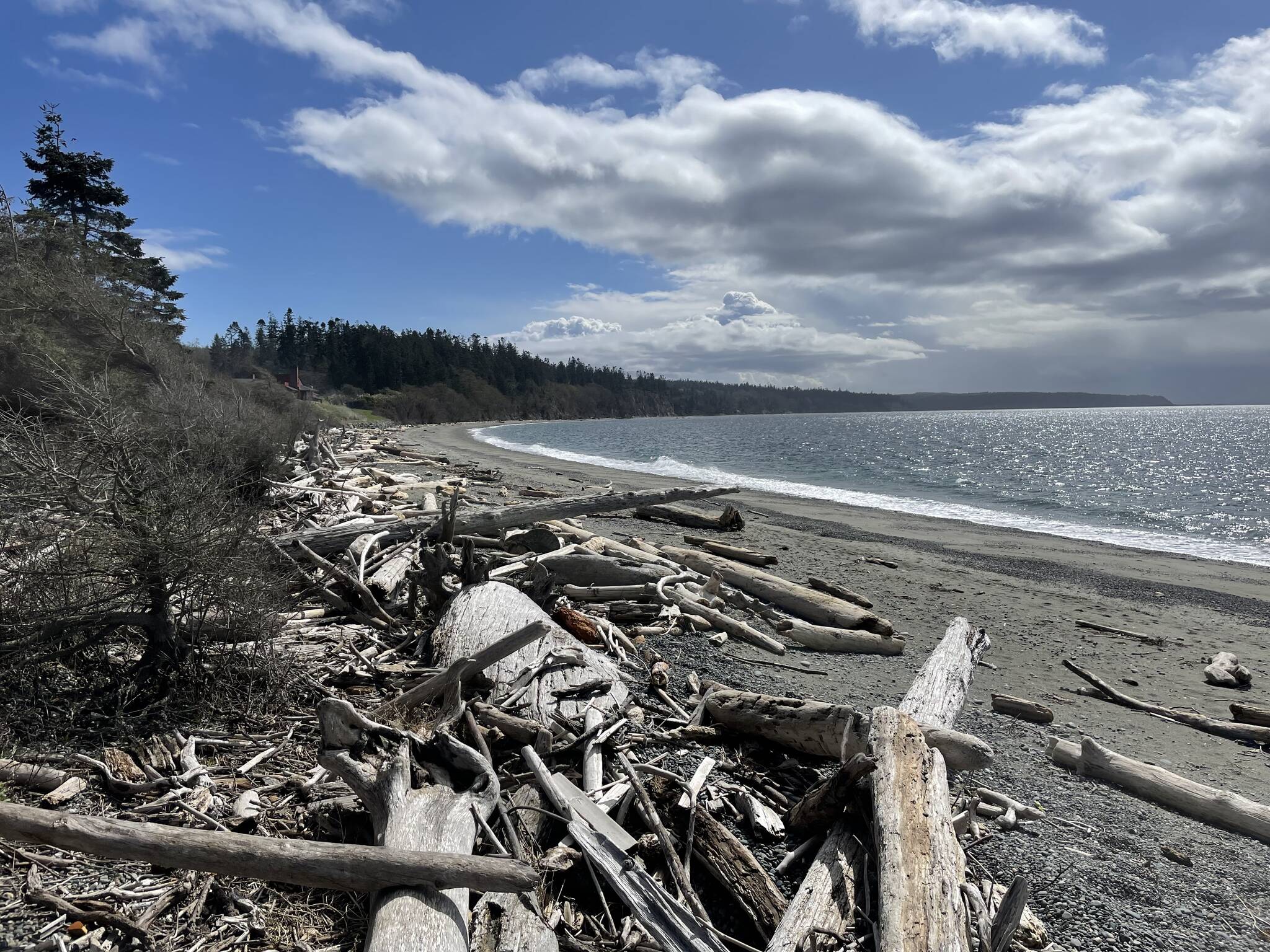In its most expensive purchase to date, the Whidbey Camano Land Trust has taken possession of one of the island’s oldest farms and the surrounding shoreline and forest areas.
The property, known as the Keystone Farm and Forest Preserve, is 226 acres of waterfront property directly south of the Admiral’s Cove neighborhood and east of the Coupeville ferry terminal on Admiralty Bay. It includes two-thirds of a mile of shoreline, 175 acres of forest and a historic farm that has been operating since the 1850s.
The purchase cost the Land Trust $6.5 million. According to a Land Trust press release, the money came from a private donor and regional nonprofit Craft3, which provides bridge loans to help organizations fund conservation projects. The Land Trust will pursue grants, Navy funds and community fundraising to repay its loan.
The press release further states that the Land Trust has had its eye on the property for a long time but kicked its efforts to preserve the land into high gear when the site went on the market for residential development in December.
Plans for the property include removing a bulkhead on the shoreline and allowing public beach access, as well as designing and developing a trail network through the forested area, Land Trust Conservation Director Ryan Elting said in an interview. The beach access will come first, with the shoreline likely opening to the public in 2024.
Other preservation projects on the property will include planting native buffers, reforestation and re-establishing a creek to improve habitat for salmon, birds and other wildlife. The area is a high-quality habitat site for a diverse range of species, such as bald eagles, deer, pigeon guillemots and coyotes, Elting said.
The conservation director added that the Land Trust will partner with the Whidbey Audubon Society and the Sound Water Stewards to take a more complete inventory of the birds and marine wildlife that make their homes on the property.
The Keystone Farm, which has been active for around 170 years, will also continue to operate. The Land Trust will partner with the Organic Farm School to instigate regenerative agriculture practices which Elting said will complement the Land Trust’s restoration and preservation work and “showcase how those can go together.”
“The Land Trust is really excited to have this opportunity to partner with some great organizations on the island and showcase some amazing conservation work that will happen and get the public out there as soon as we can,” Elting said.
The prairie on which the Keystone Farm sits was cared for and maintained by the Lower Skagit Tribe until retired sea Captain William Robertson and his family homesteaded on the property in the early 1850s. In the mid-1850s, a band of Haida Indians from British Columbia attacked the Robertsons and burned their log cabin.
Robertson built a new log cabin and mounted a small ship’s cannon on the property to defend against further attacks. He died in 1888.




